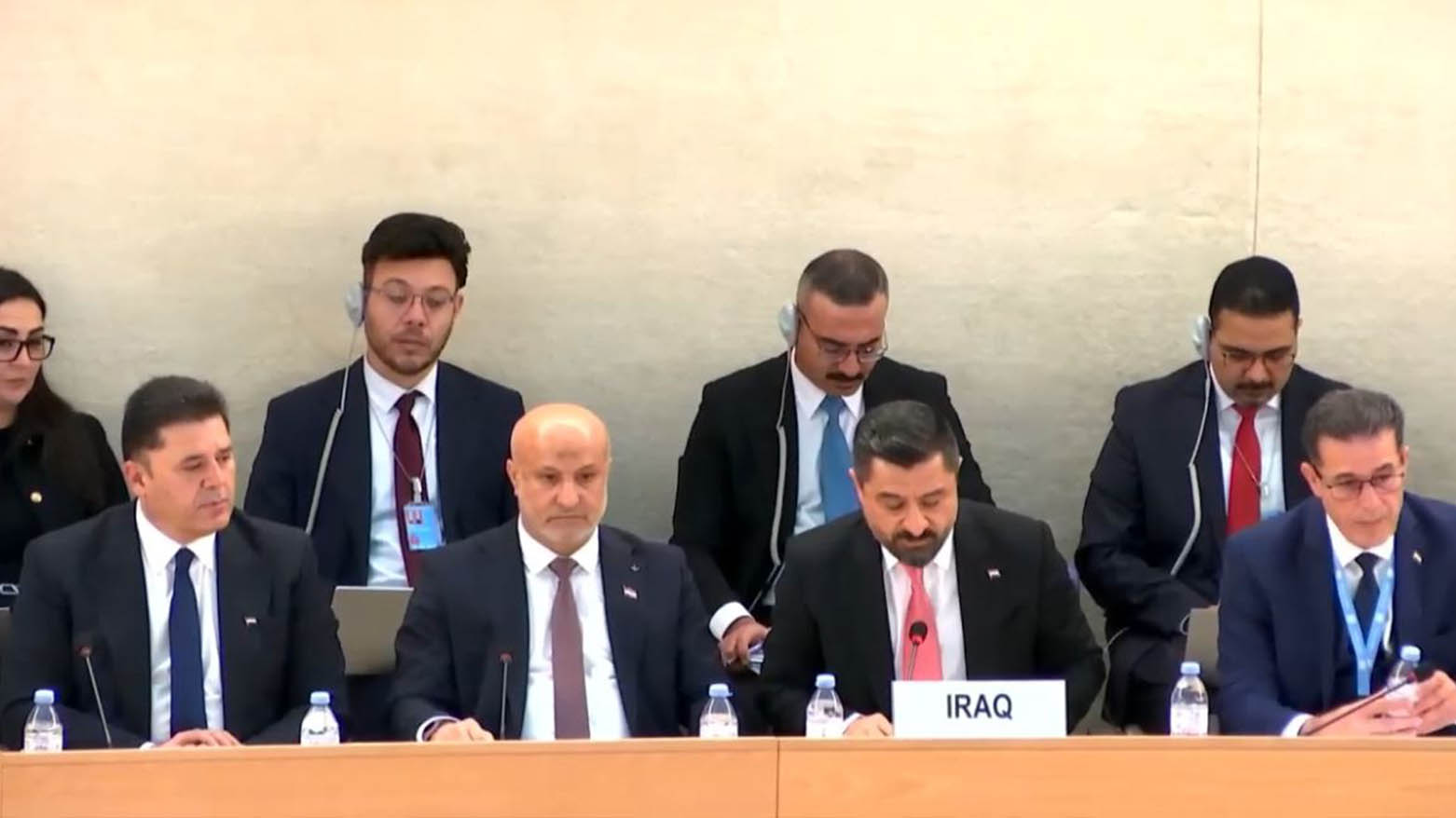KRG's Progress Spotlighted at UN's Universal Periodic Review
His detailed presentation underlined the region’s determination to conform to international standards, even amid significant challenges.

Jan. 27, 2025
ERBIL (Kurdistan24) – At the 48th Session of the Universal Periodic Review (UPR) in Geneva, Dr. Dindar Zebari, Coordinator of International Advocacy, delivered a speech outlining the Kurdistan Regional Government's (KRG) comprehensive efforts to enhance human rights, combat terrorism, and strengthen governance.
His detailed presentation underlined the region’s determination to conform to international standards, even amid significant challenges.
In a key address at the United Nations Human Rights Council in Geneva, Dr. Dindar Zebari, representing the Kurdistan Regional Government, highlighted the administration's steadfast commitment to human rights, security, and sustainable development.
He expounded on the KRG’s 2021-2025 human rights plan, crafted in collaboration with legislative and judicial bodies, United Nations agencies, and civil society.
Highlighting the battle against terrorism, Dr. Zebari reported on the prosecution of over 1,400 individuals for terrorism and espionage.
“Over the past three years, 1,456 individuals have been tried on terrorism-related charges, while 689 others have faced prosecution for espionage,” Zebari stated.
Zebari further explained that in collaboration with UNITAD, the KRG has digitized 42,000 case files, documenting ISIS crimes in over 408,000 pages.
This effort also resulted in the provision of encrypted data and the rescue of 3,579 captives, alongside financial support for over 3,500 liberated individuals.
On legal reforms, Zebari noted progress on the draft Anti-Torture Law, aligning with international conventions.
“The first reading of the draft law has been completed, with further readings planned,” he said.
The government has referred 32 cases of torture to court and sanctioned 31 individuals for violence, illustrating a firm stance against human rights violations.
Tackling organized crime, Zebari details that the KRG has investigated 190 cases of human trafficking, resulting in 62 arrests and 13 companies facing legal action.
Additionally, Zebari reported that the KRG's anti-corruption measures also saw the implementation of 50% of UPR recommendations, with 573 cases investigated in 2024 and 97 individuals sanctioned.
In addition to addressing governance, Zebari reiterated that the KRG has prioritized social welfare. “KRG has adopted a comprehensive child protection policy aimed at safeguarding children from all forms of violence and abuse,” he stated.
Moreover, the Coordinator for International Advocacy confirmed that 36,300 refugee students are currently enrolled in schools across the Kurdistan Region.
Environmental conservation also featured prominently, with the construction of 14 dams storing over 80 million cubic meters of water.
Additionally, anti-narcotics measures have resulted in 5,160 arrests related to substance abuse and trafficking, supported by a dedicated fund established under Law No. 1 of 2020.
Concluding his remarks, Dr. Zebari acknowledged financial and administrative hurdles but underscored the significant impact of successfully implemented recommendations.
The session underscored the KRG’s commitment to global standards in governance, human rights, and environmental protection. As the Kurdistan Region continues to navigate its challenges, its proactive stance at the UPR highlights a determination to foster stability, equity, and resilience.